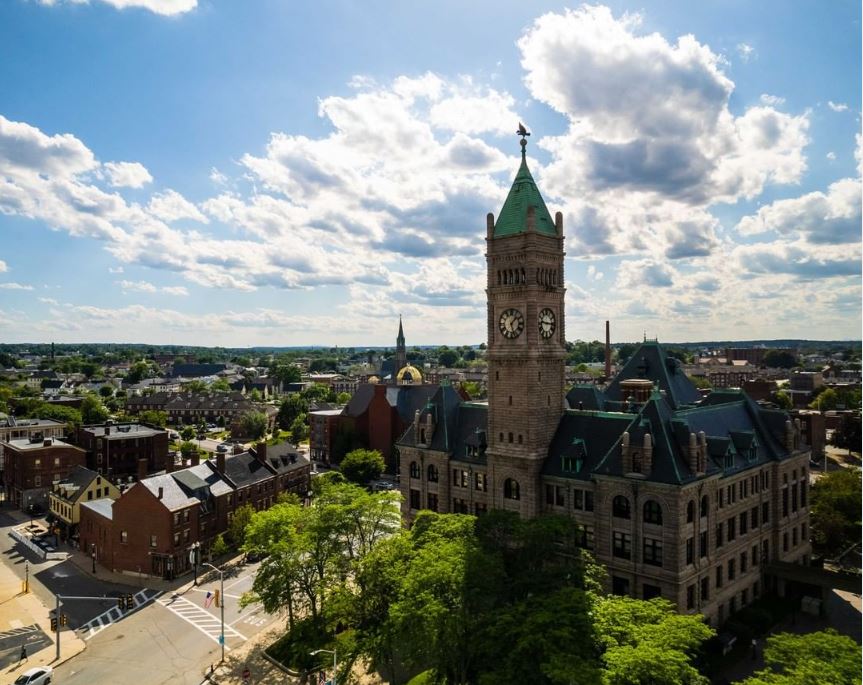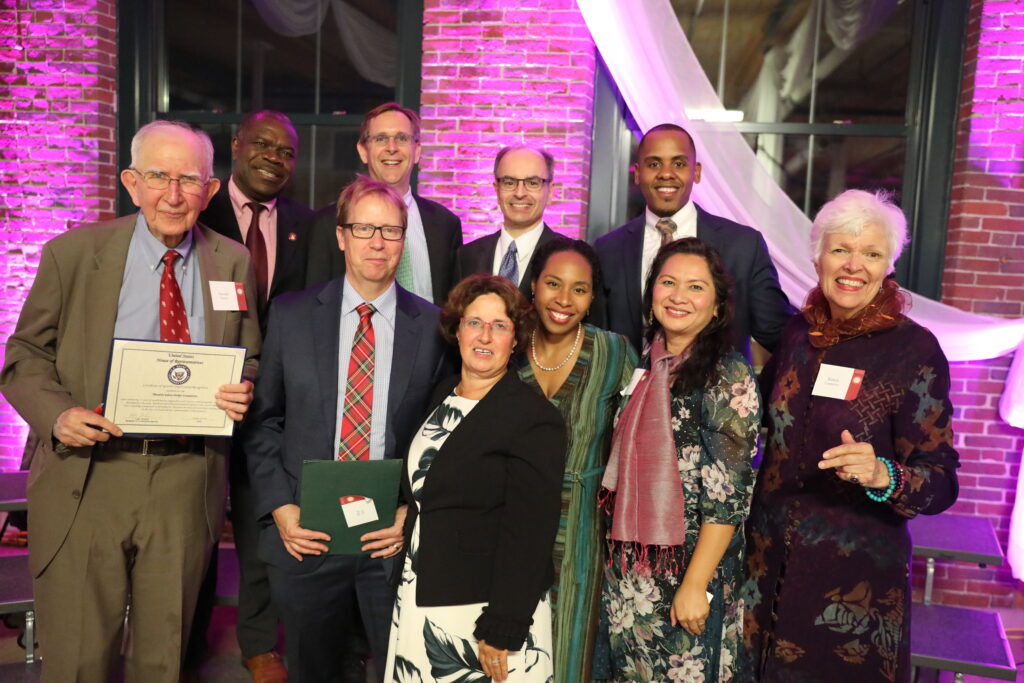The Theodore Edson Parker Foundation was founded on October 27, 1944, when the first five trustees gathered to carry out the instructions of the will of Theodore Edson Parker to establish a foundation.
Devoted to the benefit of charitable, educational, and philanthropic institutions within or without the Commonwealth of Massachusetts.
Meeting at the law offices of Powers and Hall, they inaugurated the Theodore Edson Parker Foundation as a non-profit corporation, and authorized the foundation’s first two pledges: $7,500 to the Greater Boston United War Fund and $5,000 to the Lowell United War Fund.
The complete story of the Parker Foundation begins not 50 years ago, however, but 117 years ago, in Lowell, Massachusetts, on the evening of April 24, 1877, in the reception room of Huntington Exhibition Hall above the Boston and Lowell railroad station.
There, less than a year after the patent was granted, and still some time before Bell Telephone Company was incorporated, an exclusive audience of 40 “gentlemen” gathered to see and hear a professor from Boston University named Alexander Graham Bell demonstrate his new invention, the “telephony.”
A newspaper account of the evening relates that ” the test commenced . . . when a cabinet organ was played in Boston and was distinctly heard in this city.” The invited guests heard such popular songs as “Yankee Doodle,” “Home Sweet Home,” and “Hold the Fort,” the last also sung by Thomas A. Watson, Bell’s assistant.
News dispatches were passed over the wires to and from the Boston and Lowell papers.
The following evening, a second demonstration in the main lecture hall for the general public featured a “celebrated contralto of Boston,” and others who made “merry music for their Huntington Hall audience 26 miles away.”
In attendance at either the April 24 demonstration or the public demonstration the next day was Dr. Moses Greeley Parker, a man of foresight, destined to become a wealthy man through Bell’s invention and his own recognition of its prospective significance.

An accomplished amateur inventor, as well as physician, Parker was intrigued by the telephone demonstration and began his own experiments, which convinced him of the technology’s potential.
He began buying stock, first cautiously, then in large blocks. By 1883 he was one of the largest individual stockholders in both the American Telephone Company and the New England Telephone and Telegraph Company.
In time, his holdings grew into a fortune, allowing Parker to make substantial bequests to numerous charitable organizations.
The bulk of that fortune, passing upon Dr. Parker’s death to his sister, Mary Greeley Parker Morrison and to a nephew, Theodore Edson Parker Jr., inspired and made possible the eventual formation of the Theodore Edson Parker Foundation, now dedicated to supporting non-profit organizations in the city of Lowell.
The complete story of the Parker Foundation begins not 50 years ago, however, but 117 years ago, in Lowell, Massachusetts, on the evening of April 24, 1877, in the reception room of Huntington Exhibition Hall above the Boston and Lowell railroad station.
There, less than a year after the patent was granted, and still some time before Bell Telephone Company was incorporated, an exclusive audience of 40 “gentlemen” gathered to see and hear a professor from Boston University named Alexander Graham Bell demonstrate his new invention, the “telephony.”
A newspaper account of the evening relates that ” the test commenced . . . when a cabinet organ was played in Boston and was distinctly heard in this city.” The invited guests heard such popular songs as “Yankee Doodle,” “Home Sweet Home,” and “Hold the Fort,” the last also sung by Thomas A. Watson, Bell’s assistant.

President
Treasurer
Clerk
Trustee
Advisor
Advisor